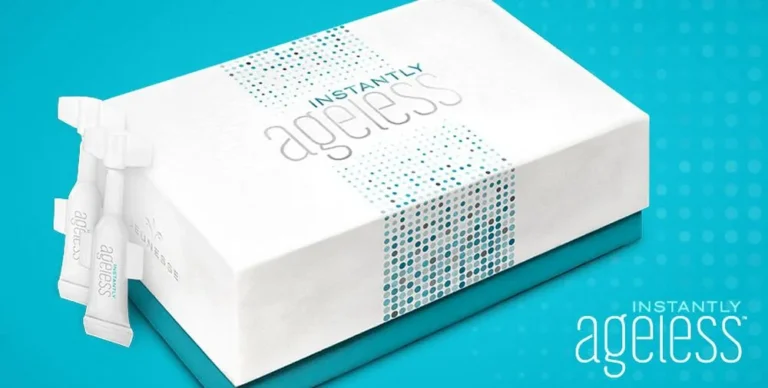Unveiling the Secrets of Vegan Collagen: How it Benefits Your Skin, Hair, and Nails
Are you looking for a way to boost your skin’s radiance, strengthen your hair, and enhance the health of your nails—all while staying true to your vegan lifestyle? Well, we have some exciting news for you: vegan collagen is here to save the day! That’s right—collagen doesn’t have to be sourced from animal products anymore. Thanks to recent advancements in plant-based science, there are now incredible options available that provide all the benefits of traditional collagen without any animal ingredients. In this blog post, we will unveil the secrets of vegan collagen and show you how it can revolutionize your beauty routine. Get ready to discover an entirely new world of skincare possibilities and unlock the natural power of plants! So sit back, relax, and let us guide you through everything you need to know about vegan collage’n.
Can Collagen Be Vegan?
Collagen is a protein that has long been associated with animal products, particularly in the form of bone broth or gelatin. But can collagen be vegan? The answer might surprise you! While traditional collagen is derived from animal sources such as cows, pigs, or fish, advancements in plant-based science have paved the way for vegan alternatives.
Plant-based support for collagen comes from ingredients like fruits and vegetables rich in vitamin C, which plays a crucial role in collagen synthesis. Additionally, foods like legumes and nuts provide amino acids essential for collagen production. These natural sources help nourish your body from within and promote healthy skin, hair, and nails without sacrificing your vegan principles.
Choosing vegan collagen means embracing cruelty-free options that align with your ethics while still reaping the benefits of this vital protein. With innovative formulations now available on the market, it’s easier than ever to find high-quality vegan collagen supplements and skincare products that deliver impressive results.
Plant-Based Support for Collagen
Collagen is typically associated with animal products like meat, fish, and bone broth. But did you know that there are plenty of plant-based sources that can support collagen production in your body? Yes, it’s true!
Certain fruits and vegetables are rich in nutrients that promote collagen synthesis. For example, citrus fruits like oranges and strawberries contain high levels of vitamin C, which plays a key role in collagen production. Leafy greens such as spinach and kale provide antioxidants that protect existing collagen from damage.
Moreover, plant-based proteins like beans, lentils, quinoa, and tofu can contribute to the formation of new collagen fibers. These protein-packed foods also offer other vital nutrients such as zinc and copper – crucial for maintaining healthy skin elasticity.
By incorporating these plant-based options into your diet regularly, you’ll nourish your body with the essential building blocks needed for optimal collagen production. So go ahead and embrace the power of plants to support your natural glow from within!
How to Choose Vegan Collagen
With the increasing popularity of vegan collagen, it’s important to know how to choose the right one for your needs. Here are some tips to help you make an informed decision.
First and foremost, look for a vegan collagen supplement that is sourced from plant-based ingredients such as seaweed or mushrooms. These natural sources provide essential amino acids needed for collagen production without any animal-derived ingredients.
Next, consider the form of the vegan collagen supplement. You can find it in both capsule and powder forms. Capsules offer convenience and ease of consumption, while powders can be easily mixed into smoothies or beverages for added versatility.
Check the ingredient list and opt for products that contain additional nutrients like biotin, vitamin C, or hyaluronic acid. These ingredients work synergistically with collagen to support healthy skin, hair, and nails.
By following these guidelines when choosing a vegan collagen product, you can ensure that you’re getting a high-quality supplement tailored to your specific needs. So go ahead and embrace the power of plant-based collagen!
Benefits of Vegan Collagen
When it comes to skincare, we all want that youthful glow and healthy complexion. That’s why collagen has become such a buzzword in the beauty industry. But can collagen be vegan? The answer is yes! And the benefits of vegan collagen are truly remarkable.
Vegan collagen helps support your body’s natural production of collagen. It contains plant-based ingredients like amino acids, vitamins, and minerals that promote healthy skin, hair, and nails. By incorporating vegan collagen into your routine, you’re giving your body the necessary building blocks to maintain strong and supple skin.
Vegan collagen is cruelty-free and sustainable. It’s derived from plants like seaweed or algae instead of animal sources like bones or cartilage. Choosing a plant-based option not only aligns with ethical values but also helps protect our planet by reducing the demand for animal-derived products.
Vegan collagen offers long-term benefits beyond just improving your appearance. It supports joint health by promoting flexibility and mobility while also aiding digestion by strengthening gut lining integrity.
Vegan Collagen Options
When it comes to vegan collagen options, there are a few alternatives that you can consider. One popular choice is plant-based collagen boosters, which contain ingredients like vitamin C and amino acids that promote collagen production in the body. These supplements are typically derived from fruits, vegetables, and other natural sources.
Another option is vegan collagen peptides made from plant proteins such as rice or peas. They are broken down into smaller peptides for easier absorption by the body. These peptides provide the building blocks necessary for collagen synthesis and support overall skin health.
If you prefer a more direct approach, there are also topical vegan collagen creams available. These creams often contain plant-derived ingredients like seaweed extract or hyaluronic acid that help hydrate the skin and improve its elasticity.
No matter which option you choose, it’s important to do your research and find a reputable brand that uses high-quality ingredients. Consulting with a healthcare professional or dermatologist can also be helpful in determining the best vegan collagen option for your specific needs.
How Much Vegan Collagen Do You Need?
How much vegan collagen do you need to reap its amazing benefits for your skin, hair, and nails? While the ideal dosage may vary depending on individual needs and goals, experts generally recommend a daily intake of around 2.5-10 grams of vegan collagen peptides.
It’s important to note that consuming excessive amounts of vegan collagen won’t necessarily lead to better results. Your body can only absorb and utilize a certain amount at a time. So instead of going overboard with your consumption, it’s best to stick within the recommended range.
Factors such as age, overall health, and specific concerns also play a role in determining the optimal dosage for each person. If you’re unsure about how much vegan collagen is right for you, it’s always wise to consult with a healthcare professional or nutritionist who can provide personalized advice based on your unique circumstances.
Remember, consistency is key when it comes to supplementing with vegan collagen. By incorporating it into your daily routine in appropriate amounts, you’ll be well on your way to supporting healthier skin, stronger hair, and more resilient nails!
Vegan Collagen vs Traditional Collagen
When it comes to collagen, there’s a common misconception that it can only be sourced from animal products. However, the rise of veganism has paved the way for plant-based alternatives, including vegan collagen. So how does vegan collagen stack up against traditional collagen?
Let’s address the elephant in the room – traditional collagen is derived from animal sources such as cows and fish. This poses ethical concerns for individuals who follow a vegan lifestyle or those who prefer cruelty-free options. On the other hand, vegan collagen is made using purely plant-based ingredients, making it an attractive choice for those seeking an ethical alternative.
While both types of collagens aim to enhance skin elasticity and promote healthy hair and nails, there are some key differences between them. Traditional collagen contains specific amino acids that are believed to directly stimulate our body’s own production of collagen. Vegan collagen supplements often provide plant-based nutrients like vitamin C and biotin that support natural collagen synthesis in our bodies.
Another advantage of choosing vegan collagen is its potential compatibility with various dietary restrictions or allergies. Traditional collagens may contain additives or allergens that could cause adverse reactions in certain individuals. Vegan alternatives offer a cleaner ingredient profile without compromising on efficacy.
Vegan Collagen Supplements: Capsules vs Powders
There are various options available when it comes to vegan collagen supplements, with capsules and powders being the most common choices. Both formats have their advantages, so let’s take a closer look.
Capsules offer convenience and ease of use. They come in pre-measured doses, making it simple to incorporate into your daily routine. Just swallow a capsule with water, and you’re good to go! Capsules also tend to have a longer shelf life compared to powders.
On the other hand, powders provide versatility. You can easily mix them into your favorite beverages or smoothies for a delicious collagen boost. Powders also allow for more control over dosage customization since you can adjust the amount according to your needs.
Whether you choose capsules or powders depends on your personal preference and lifestyle. If you’re always on the go and prefer quick and effortless supplementation, capsules may be the way to go. However, if you enjoy experimenting with different recipes or want flexibility in dosage control, powder form might be more appealing.
Vegan Collagen Skincare Products
When it comes to taking care of our skin, we’re always on the lookout for products that can help us achieve a healthy and youthful glow. And now, with the rise of vegan collagen skincare products, achieving radiant skin has become even more accessible.
These innovative skincare products are formulated with plant-based ingredients that work harmoniously to boost collagen production in the skin. From serums and creams to masks and oils, there is a wide range of vegan collagen skincare options available on the market today.
One of the key benefits of using vegan collagen skincare products is their ability to replenish and restore moisture levels in the skin. This helps reduce signs of aging such as fine lines and wrinkles, promoting a smoother and more supple complexion. Additionally, these products often contain antioxidants that protect against environmental damage, making them ideal for those looking for natural ways to combat premature aging.
By incorporating vegan collagen skincare products into your daily routine, you can nourish your skin from within while also supporting ethical practices. With their powerful blend of plant-based ingredients, these products offer an effective solution for those seeking healthier-looking skin without compromising their values. So why not give them a try? Your skin will thank you!
Vegan Collagen Testimonials and Reviews
When it comes to trying a new product, it’s always helpful to hear what others have experienced. That’s why we’ve gathered some testimonials and reviews from people who have incorporated vegan collage’n into their beauty routine.
Many users rave about the visible improvements in their skin, hair, and nails after using vegan collagen supplements or skincare products. They report smoother, more radiant skin with reduced fine lines and wrinkles. Some even mention stronger nails that no longer break easily.
One user shares how incorporating vegan collage’n into her daily routine has given her the confidence she needed. She mentions that her skin looks plumper and more youthful than ever before. Another reviewer is thrilled with the results on her hair—she noticed significant growth and increased thickness after using vegan collage’n for just a few months.
These testimonials show that incorporating vegan collage’n into your beauty regimen can yield impressive results. However, keep in mind that individual experiences may vary depending on factors such as age, lifestyle, and overall health. It’s always best to consult with a healthcare professional or dermatologist before starting any new supplement or skincare routine.
Frequently Asked Questions about Vegan Collagen
1. Can I get enough collagen from plant-based sources alone?
While animal products are typically rich in collagen, there are plenty of plant-based sources that can support your body’s natural production of this important protein. By incorporating foods like soybeans, legumes, nuts, seeds, and fruits into your diet and supplementing with vegan collage’n options, you can ensure you’re getting the necessary nutrients to support healthy skin.
2. Are vegan collagen supplements as effective as traditional collagen supplements?
Vegan collage’n supplements work by providing key nutrients that help promote your body’s own production of collagen. While they may not contain actual animal-derived collagens like traditional supplements do, they can still be highly effective in supporting overall skin health when combined with a well-balanced diet.
3. How long does it take to see results from using vegan collage’n products?
Results may vary depending on factors such as individual metabolism and lifestyle choices. However, consistent use of vegan collage’n products over time can lead to noticeable improvements in the appearance and texture of your skin.
4. Can I use vegan collage’n skincare products if I have sensitive skin?
Yes! Vegan collage’n skincare products often utilize gentle ingredients that are suitable for all skin types – including those with sensitive or acne-prone skin. However, as everyone’s skin is unique, it’s always advisable to patch test new skincare products before applying them to larger areas.







